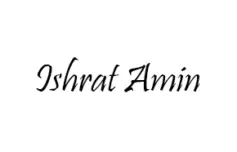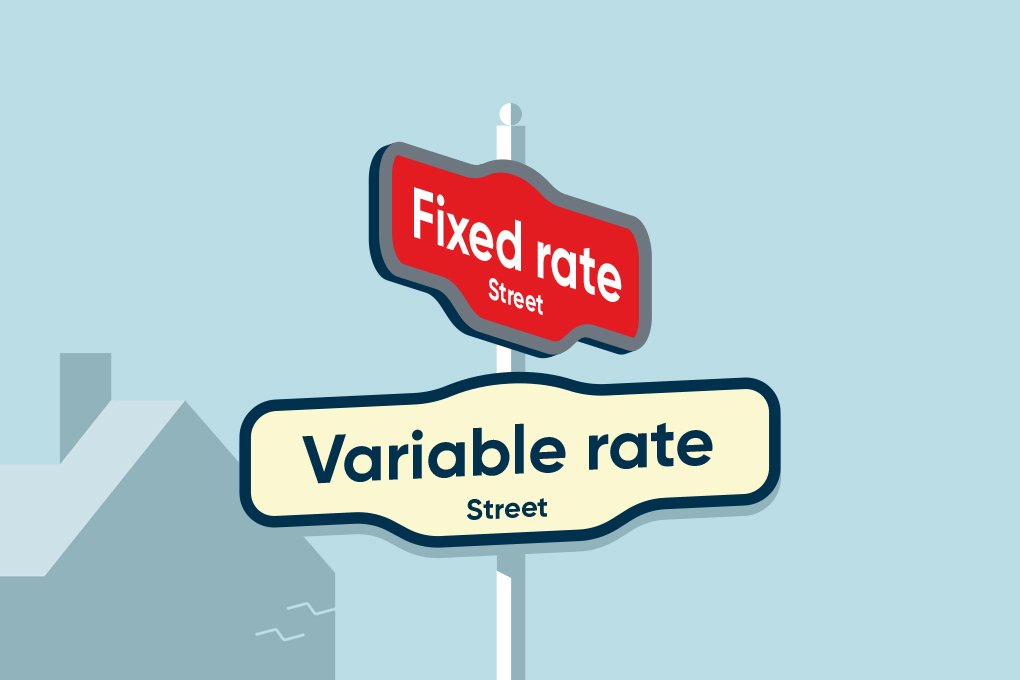Are you in the market for a new mortgage? One of the first decisions you’ll need to make is whether to choose a fixed-rate or variable-rate mortgage. It’s an important choice that will impact your finances for years to come. But fear not! In this article, we’ll guide you through the process of choosing between a fixed-rate and variable-rate mortgage, helping you understand the pros and cons of each option. So, let’s dive right in and explore the factors you need to consider before making this crucial decision. Excited? Let’s get started!
Choosing Between a Fixed-Rate and Variable-Rate Mortgage
When it comes to getting a mortgage, one of the most important decisions you’ll need to make is whether to choose a fixed-rate or variable-rate mortgage. Both options have their benefits and drawbacks, and the choice ultimately depends on your individual financial situation and preferences. In this article, we will delve into the details of fixed-rate and variable-rate mortgages, exploring the key factors to consider when making this decision.
The Difference Between Fixed-Rate and Variable-Rate Mortgages
Before we dive deeper into the decision-making process, let’s start by understanding the fundamental differences between fixed-rate and variable-rate mortgages:
- Fixed-Rate Mortgage: With a fixed-rate mortgage, the interest rate remains the same throughout the term of the loan. This means that your monthly mortgage payments will remain unchanged, providing stability and predictability.
- Variable-Rate Mortgage: In contrast, a variable-rate mortgage, also known as an adjustable-rate mortgage (ARM), has an interest rate that can fluctuate over time. The rate is typically tied to a benchmark such as the prime rate, with periodic adjustments that can affect your monthly payments.
Now, let’s explore the factors you should consider when deciding between these two mortgage options.
Financial Stability and Budgeting
One of the primary factors to assess when choosing between a fixed-rate and variable-rate mortgage is your financial stability and your ability to budget. Consider the following:
- Income Stability: If you have a steady and reliable income, a fixed-rate mortgage can be advantageous. With predictable monthly payments, you can budget with confidence, knowing that your mortgage payment won’t change over time.
- Future Income and Expenses: However, if you expect a significant increase in your income or foresee reduced expenses in the future, a variable-rate mortgage might be more suitable. This is particularly true if you plan to sell the property or refinance before any potential interest rate adjustments occur.
Interest Rate Trends and Market Conditions
Another critical aspect to evaluate is the current state of interest rates and market conditions. Here are some key points to consider:
- Current Interest Rate: If interest rates are relatively low at the time of your mortgage application, locking in a fixed-rate mortgage can provide you with long-term stability and protection against potential rate increases.
- Economic Outlook: Research and analyze economic indicators, expert predictions, and market trends to gauge the likelihood of interest rates rising or falling in the future. This information can inform your decision regarding the predictability of a fixed-rate mortgage versus the potential cost savings of a variable-rate mortgage.
Tolerance for Risk and Uncertainty
Understanding your personal tolerance for risk is crucial when considering a variable-rate mortgage. Here’s what you should think about:
- Risk Mitigation: If you prefer stability and want to minimize financial risks, a fixed-rate mortgage is likely the best choice. By locking in a rate, you eliminate the uncertainty associated with potential interest rate hikes.
- Flexibility: On the other hand, if you have a higher risk tolerance and can handle potential fluctuations in your monthly payments, a variable-rate mortgage might offer more flexibility. It may provide an opportunity to take advantage of lower interest rates and potentially save money if rates decrease.
Loan Term and Future Plans
The length of time you plan to own the property and the term of your mortgage can also influence your decision. Consider the following:
- Short-Term Ownership: If you anticipate only owning the property for a few years or plan to sell it in the near future, a variable-rate mortgage could be a viable option. You may benefit from the lower initial interest rates before any potential rate adjustments occur.
- Long-Term Ownership: If you plan to stay in the property for an extended period, a fixed-rate mortgage provides the security of knowing your payments won’t change. It eliminates the uncertainty of potential rate fluctuations, allowing you to budget for the long term.
Negotiating a Mortgage
Regardless of whether you choose a fixed-rate or variable-rate mortgage, it’s essential to shop around and negotiate the terms that suit you best. Here are some tips:
- Compare Interest Rates: Obtain quotes from different lenders and compare the interest rates, fees, and terms they offer. This research can help you make an informed decision and potentially negotiate better terms.
- Seek Professional Advice: Consult with a mortgage broker or financial advisor who can provide expert guidance based on your specific financial situation and goals. They can help you understand the fine print and ensure you are making the right choice.
Choosing between a fixed-rate and variable-rate mortgage is a significant decision that can have long-term financial implications. By carefully assessing factors such as your financial stability, interest rate trends, risk tolerance, loan term, and future plans, you can determine which option aligns best with your needs and goals. Remember, there is no one-size-fits-all approach, and what works for one person may not work for another. Ultimately, the key is to understand your financial situation, do thorough research, and seek professional guidance to make an informed decision.
Fixed Mortgage Or Variable Mortgage, What Do I Choose?
Frequently Asked Questions
Frequently Asked Questions (FAQs)
What is the difference between a fixed-rate and variable-rate mortgage?
A fixed-rate mortgage offers a consistent interest rate throughout the loan term, providing stability in monthly payments. On the other hand, a variable-rate mortgage has an interest rate that can change over time, usually based on a benchmark such as the prime lending rate.
Which is better: a fixed-rate or variable-rate mortgage?
The choice between a fixed-rate and variable-rate mortgage depends on your financial goals and risk tolerance. A fixed-rate mortgage is generally recommended if you prefer predictable payments and want to protect against potential interest rate increases. A variable-rate mortgage may be more suitable if you are comfortable with potential rate fluctuations and want the possibility of lower initial interest rates.
How do fixed-rate and variable-rate mortgages affect monthly payments?
With a fixed-rate mortgage, the monthly payments remain the same throughout the loan term, providing stability and ease of budgeting. However, with a variable-rate mortgage, the monthly payments can change as the interest rate adjusts. This means that if interest rates increase, your payments may also increase.
What are the advantages of a fixed-rate mortgage?
A fixed-rate mortgage offers several advantages. Firstly, it provides stability by locking in a consistent interest rate, making it easier to plan your finances. Additionally, it protects you from potential interest rate hikes in the future, allowing you to budget with certainty. This type of mortgage is particularly suitable for individuals who prefer a predictable payment schedule.
What are the advantages of a variable-rate mortgage?
A variable-rate mortgage can offer advantages such as lower initial interest rates compared to fixed-rate mortgages. If interest rates decrease, you may benefit from reduced monthly payments. Variable-rate mortgages also typically come with the option to convert to a fixed rate later on, providing flexibility if your circumstances change.
How does the length of the loan term impact the choice between a fixed-rate and variable-rate mortgage?
The length of the loan term can influence the decision between a fixed-rate and variable-rate mortgage. If you plan to stay in your home for a long time, a fixed-rate mortgage may be more suitable as it offers stability for the duration of the loan. However, if you plan to sell or refinance within a few years, a variable-rate mortgage could potentially provide lower interest rates during the initial period.
What factors should I consider when choosing between a fixed-rate and variable-rate mortgage?
When deciding between a fixed-rate and variable-rate mortgage, it’s important to consider factors such as your financial goals, risk tolerance, current interest rate environment, and future plans. You should also evaluate your ability to handle potential fluctuations in monthly payments and assess the overall cost implications of each option.
Can I switch from a fixed-rate to a variable-rate mortgage, or vice versa, after I’ve already chosen one?
Yes, it is often possible to switch between a fixed-rate and variable-rate mortgage after you’ve initially chosen one. However, the availability and conditions of such a switch may vary depending on your lender and specific mortgage agreement. It’s crucial to consult with your lender and carefully review the terms and potential costs associated with switching.
Final Thoughts
When deciding between a fixed-rate and variable-rate mortgage, it is crucial to carefully consider your financial goals and risk tolerance. A fixed-rate mortgage offers the stability of a consistent interest rate over the loan term, making it suitable for individuals who prefer predictable payments. On the other hand, a variable-rate mortgage provides initial lower interest rates and the potential for savings if rates drop further. However, it also carries the risk of rates increasing, resulting in higher monthly payments. Evaluating your long-term plans and consulting with a mortgage professional will help you make an informed decision about choosing between a fixed-rate and variable-rate mortgage.

